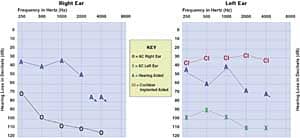Minneapolis — New technologies and evidence based research are developed and published all the time. However, the adoption of new technology or research as a medical standard of care can take years or even longer.
The often long delay between the development of a new technology or research and its general acceptance and application is the basis of a new behavioral field of study known as the Implementation and Dissemination Sciences (IDS).
A current example of the implementation gap in health care is the recent reports that detail the dangers of cough syrup for children. (www.fda.gov/ohrms/dockets/ac/07/briefing/2007-4323b1-02-fda.pdf) While there is little or no evidence that cough syrup is better than a placebo, this research has had little effect on the sale of cough syrup products. In fact, evidence suggesting that pediatric patients with middle ear fluid are more likely to be harmed by the aggressive over-use of antibiotics has not diminished the administration of these serious medications known to have numerous adverse side effects.
The audiology profession has been relatively successful in recent years developing an evidence base for best practices (EBP); unfortunately, audiologists have not been willing to adopt these practices as part of everyday routine clinical care.
Recent survey data, as reported in the MarkeTrak VIII report, suggest that patient satisfaction with hearing aids remains relatively low due, in part, to a failure to implement best practices such as the evaluation of speech understanding in noise, probe-microphone verification of hearing aid fittings, the appropriate assessment of patient outcome, and provision of post-fitting rehabilitation.
To address these implementation issues in audiology, Starkey recently hosted a conference designed to consider solutions to more immediate acceptance and adoption of new technologies as required standards of care.
A small group of key audiology leaders met with a team of Starkey staff in Eden Prairie, Minn, to learn about the sciences of implementation and dissemination and to discuss possible approaches to apply these principles to the field of audiology.
The Starkey Group has sponsored this first IDS-based "think tank" in the field to address issues of adoption, adaptation and spread of EBP for optimization of hearing health care for adults in the U.S.
The specific goals for the meeting included (a) developing an understanding of IDS and implications for audiology practice; (b) exploration of potential barriers and facilitators of adoption and adaptation of EBP protocols in audiology; and (c) strategy planning for translation of evidence to practice in hearing health care.
The keynote speaker for the Implementation Research Conference was Phyllis C Panzano, PhD, visiting professor in the Department of Behavioral and Community Sciences and the Florida Mental Health Institute at the University of South Florida.
The meeting was attended by a number of audiologists, who Starkey says will continue working with Panzano. The group plans to proceed with deliberations to generate ideas, encouraging widespread adoption of innovative hearing science technologies.
SOURCE: The Starkey Group




